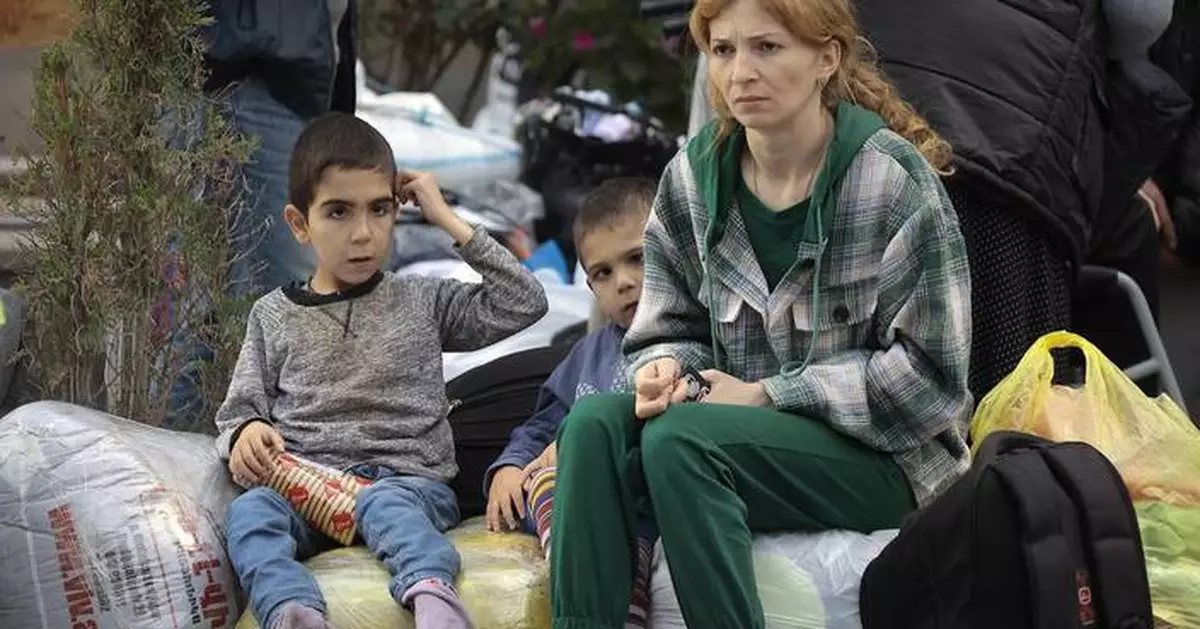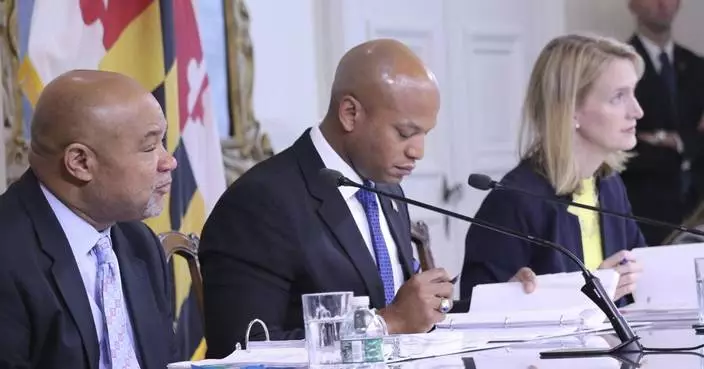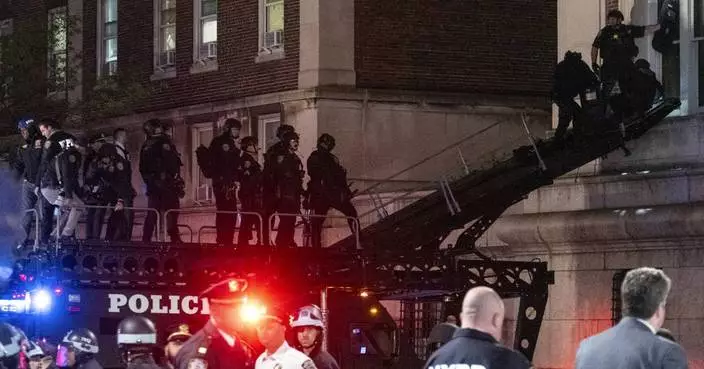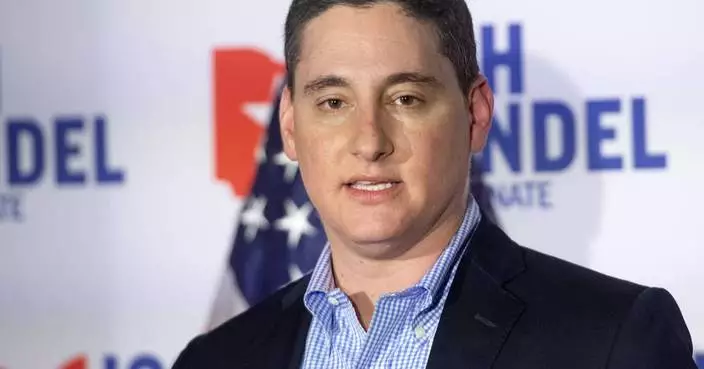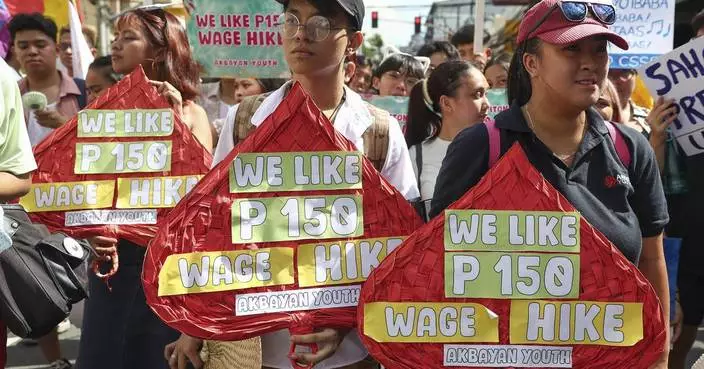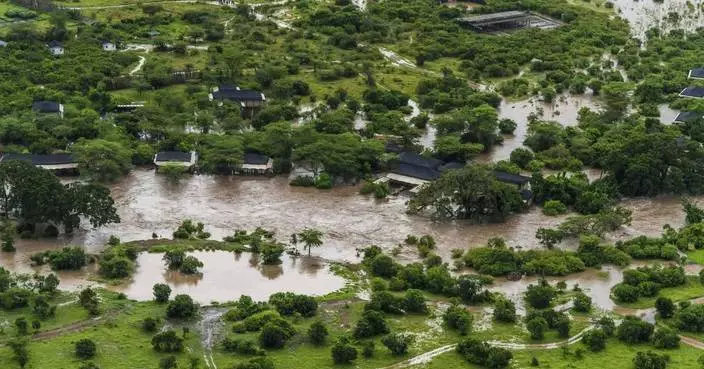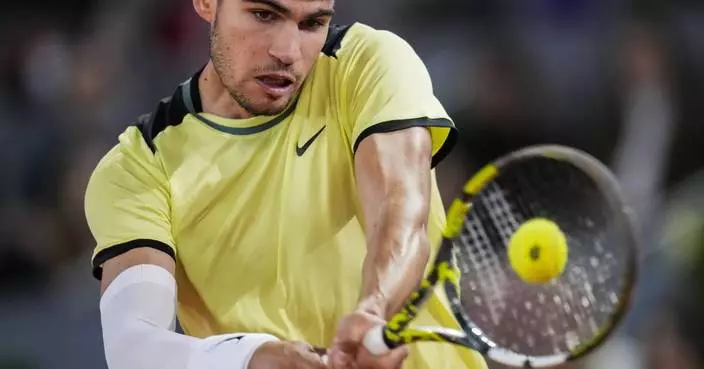THE HAGUE, Netherlands (AP) — A human rights organization representing ethnic Armenians submitted evidence to the International Criminal Court on Thursday, arguing that Azerbaijan is committing an ongoing genocide against them.
Azerbaijan’s government didn't immediately comment on the accusations. The neighboring countries have been at odds for decades over the disputed territory of Nagorno-Karabakh, and are already facing off in a separate legal case stemming from that conflict.
Lawyers for the California-based Center for Truth and Justice, or CFTJ, say there is sufficient evidence to open a formal investigation into Azerbaijani President Ilham Aliyev and other top leaders for genocide. They have submitted a so-called Article 15 communication urging the court’s chief prosecutor Karim Khan to look into alleged atrocities.
Khan’s office will now consider the evidence submitted and determine if the court will open an investigation, a decision expected to take months.
“My goal here is to get the highest bodies that protect human rights to take some action, not just mere words,” Lala Abgaryan, whose sister Gayane was killed by Azerbaijani soldiers in 2022, told The Associated Press.
Her sister’s body was badly mutilated and images of the abuse were spread online. Abgaryan says the pictures were so heinous that she suffered psychological damage after looking at them.
Long-standing tensions between Armenia and Azerbaijan erupted in 2020 into a war over Nagorno-Karabakh that left more than 6,600 people dead. The region is within Azerbaijan but had been under the control of ethnic Armenian forces since the end of a separatist war in 1994.
Last year, following a lightning military campaign, Azerbaijan retook the disputed territory. After Azerbaijan regained full control of Karabakh, which had a population of around 120,000, more than 100,000 of the region’s ethnic Armenians fled, although Azerbaijan said they were welcome to stay and promised their human rights would be ensured.
Prior to Azerbaijan’s offensive, Armenia and former International Criminal Court chief prosecutor Luis Moreno Ocampo accused Azerbaijan of committing genocide by creating conditions aimed at destroying Karabakh Armenians as a group.
A group of around 30 people gathered in the rain in front of The Hague-based court Thursday to hand over more than 100 pages of documents.
The rights organization said it has submitted a dossier of evidence containing the testimony of more than 500 victims and witnesses.
“These atrocities are captured on social media, by Azerbaijani soldiers themselves, where you hear them laughing, making comments, and taking the dead bodies that they’ve just slaughtered and beheaded,” CFTJ leader Gassia Apkaria told the AP.
Legal experts say that genocide may be out of reach for the court. Armenia is a member of the ICC, but Azerbaijan isn't, leaving prosecutors with jurisdiction only over crimes committed on Armenian territory. Nagorno-Karabakh is internationally recognized as part of Azerbaijan.
Forcing nearly the entire population to relocate to Armenia, however, could fall within the court’s remit. Deportation is considered a crime against humanity.
“There is no way this was an exodus by chance,” says Mel O’Brien, an associate professor of international law at the University of Western Australia and genocide expert.
The court has moved forward with an investigation under similar circumstances into possible crimes committed by Myanmar against the Rohingya minority group. While Myanmar isn't a member state, neighboring Bangladesh is and around 750,000 people have fled across the border after being forced from their homes.
The CFTJ’s request came amid two weeks of proceedings between Armenia and Azerbaijan at another global court in The Hague. The United Nations' top court, the International Court of Justice, is hearing arguments related to a pair of cases stemming from the conflict. Each country has accused the other of violating a racial discrimination treaty.

FILE - Ethnic Armenians from Nagorno-Karabakh sit next to their belongings near a tent camp after arriving to Armenia's Goris in Syunik region, Armenia, on Saturday, Sept. 30, 2023. A human rights organization representing ethnic Armenians has submitted evidence to the International Criminal Court arguing that Azerbaijan is committing an ongoing genocide against them. (AP Photo/Vasily Krestyaninov, File)

FILE -Sergey Astsetryan, an ethnic Armenian resident of Nagorno-Karabakh, drives his Soviet-made vehicle past Azerbaijani border guard servicemen after been checked at the Lachin checkpoint on the way from Nagorno-Karabakh to Armenia, in Azerbaijan, Sunday, Oct. 1, 2023. A human rights organization representing ethnic Armenians has submitted evidence to the International Criminal Court arguing that Azerbaijan is committing an ongoing genocide against them. (AP Photo/Aziz Karimov, File)

FILE - Ethnic Armenians from Nagorno-Karabakh sit after arriving in Armenia's Goris in Syunik region, Armenia, Thursday, Sept. 28, 2023. A human rights organization representing ethnic Armenians has submitted evidence to the International Criminal Court arguing that Azerbaijan is committing an ongoing genocide against them. (AP Photo/Vasily Krestyaninov, File)


